Our team
The GREPURE project has the support of many academic and institutional partners. Moreover, the project relies on a team of experienced scholars and young dynamic researchers, all together dedicated to improving our knowledge of the ancient world.
The project is supervised by Dr. Antonio Sáez Romero, Assistant Professor at the University of Seville. He is a scholar with an extensive archeological experience regarding Punic trade in Greece. As project leader and team coordinator, Dr. Max Luaces is in charge of organizing project activities. Nonetheless, several colleagues from the University of Seville also participate in the research activities carried out by the team. Indeed, the University of Seville offers a scientific and technical environment of excellence – based on a high level of technical skills and on the complementarity of scientific profiles – favorable to the development of innovative projects. Last but not least, the project counts among its collaborators with several prominent members of the Greek academic world, including Dr. Giorgos Bourogiannis, Dr. Kostas Filis and Dr. George Koutsouflakis.
Do not hesitate to contact the members of our team and to share with us your questions or documentation on contacts between the Phoenician areas and Ancient Greece.
Researchers
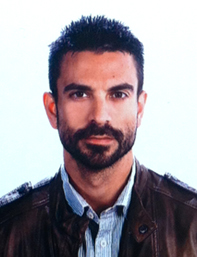
Antonio M. Sáez Romero
Lead Researcher
Assistant Professor at the University of Seville and member of the HUM 152 Group. Over the last two decades, he has developed numerous studies focused on the Archaeology of Production, taking as main case study the Bay of Cadiz during the Ist millennium BC. He has investigated the important role of the manufacture and commercialization of salted fish, and the historical role of these factors in the development of the region throughout this era. He is currently involved in directing several research projects, such as the Corinth Punic Amphora Building Project (US-ASCSA-BSA) and the GREPURE Project (US-FBBVA).
– ORCID
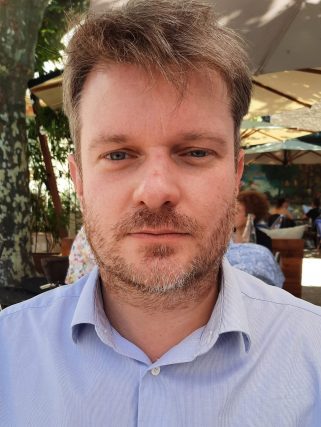
Max Luaces
Researcher
After his Master’s studies in Archaeology at the University of Aix-en-Provence (France), he carried out doctoral studies in co-direction between the University of Cadiz and the University of Lyon, focusing his researches on Late Punic amphorae. Following the completion of his PhD in 2017, he obtained a first postdoctoral contract at the École des Hautes Études en Sciences Sociales (EHESS), and currently participates in the management of the GREPURE project and its associated activities.
– ORCID
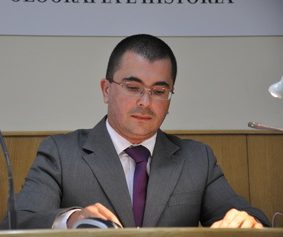
Pedro Albuquerque
Researcher
Professional archaeologist with a PhD in History and Archaeology (University of Lisbon, 2014), Pedro Albuquerque has published works on Tartessos (literature and archaeology) and modern historiography. He is a postdoctoral researcher at FCT, Uniarq and the University of Seville. He collaborates with the CIPSH Chair of Global Studies (Universidade Aberta, Portugal). He coordinates a research project on the Guadiana as a frontier (8th century BC-1st century AD).
– ORCID
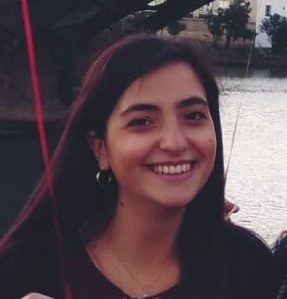
Beatrice Arra
Researcher
Her research topic concerns Phoenician Archaeology. During her Master’s degree, she investigated the maritime connections between the Iberian Peninsula and Sardinia (8th-3rd century BC) by studying harbours and shipwrecks. She is currently a PhD student in charge of a project in Ceuta regarding the distributions of the Punic transport amphoras T-11210 from one extreme to the other of the Ancient Mediterranean.
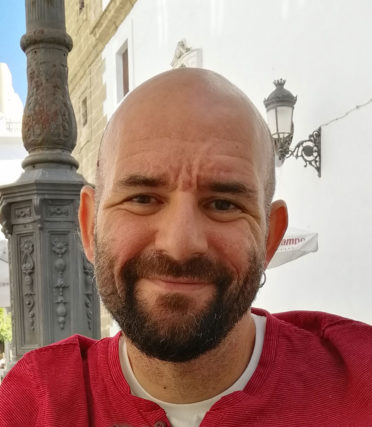
Ricardo Belizón Aragón
Researcher
Ricardo Belizón completed the Professional Master UNIGIS in Geographic Information Systems Management in 2016, and the course of Specialist in Virtualization of Heritage at the University of Alicante in 2017. He is currently pursuing doctoral studies at the University of Seville, focusing on the application of digital tools to archaeological research, backed by 20 years of professional experience in the archaeological study of Protohistory.
– ORCID
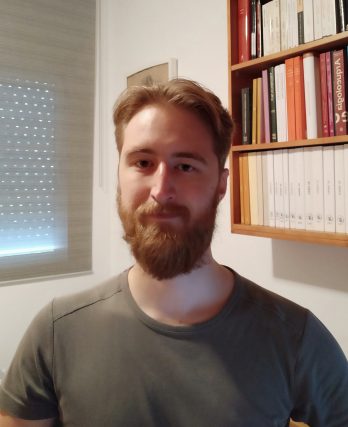
Francisco José Blanco Arcos
Researcher
Graduated in History and with a Master’s degree in Advanced Historical Studies from the University of Seville (US), he specializes in Ancient History. A member of the research group HUM152: De la Turdetania a la Bética (US), Blanco is currently a doctoral candidate in History dealing with an archaeological line of investigation. His dissertation deals with the first signs of romanization in the Lower Guadalquivir.
– ORCID
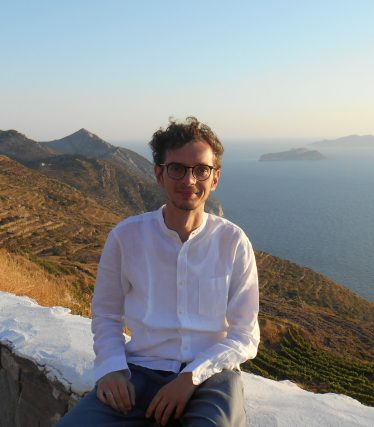
Giorgos Bourogiannis
Researcher
Giorgos Bourogiannis is an Aegean archaeologist specialised in the Early Iron Age, with a particular interest in Cypriot and Phoenician studies. He studied archaeology at the University of Athens, took his Master degree at the University of Edinburgh and, then, completed his PhD at the University of Athens. His working experience includes the British Museum and the Medelhavsmuseet in Stockholm. He is currently leading his own postdoctoral research project on Cypriot evidence from the Mediterranean.
– ORCID
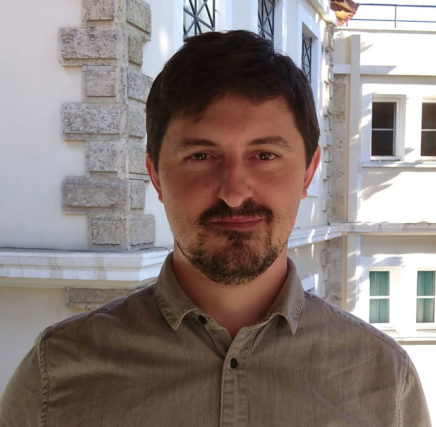
Leandro Fantuzzi
Researcher
Leandro Fantuzzi is a postdoctoral researcher at the University of Cadiz (UCA). He holds a degree in Anthropology from the UNLP, Argentina (2007), a Master in Archaeology (2011) and a PhD in Society and Culture (2015) from the University of Barcelona. He was also a postdoctoral researcher at the Fitch Laboratory of the British School at Athens (2017-2019). He is currently a member of the PAI-HUM-440 research group at UCA, and a collaborator of the Equip de Recerca Arqueològica i Arqueomètrica de la Universitat de Barcelona (ERAAUB).
– ORCID

Eduardo Ferrer Albelda
Researcher
Born in Seville in 1964, he studied Geography and History at the University of Seville, where he graduated in 1988 and received his PhD in 1995. Since 1996, he has been a professor in the Department of Prehistory and Archaeology, and, in 2017, he obtained a Chair of Archaeology. His main research areas focus on various aspects of Phoenician-Punic culture, ancient geography and Tartessus.
– ORCID
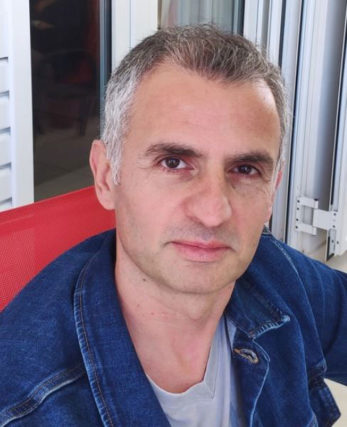
Konstantinos Filis
Researcher
An archaeologist for the Hellenic Ministry of Culture – Ephorate of Antiquities of Achaia. He has a PhD in Classical Archaeology from the University of Thessaloniki, with a dissertation titled “Transport amphorae from Akanthos and the local workshop”. His scientific interests focus on the study of transport amphorae from North Aegean workshops, as well as from the NW Peloponnese region. He has produced several scientific papers in Greek and foreign journals, conferences, honorary volumes, exhibition catalogues and book reviews.
Enrique García Vargas
Researcher
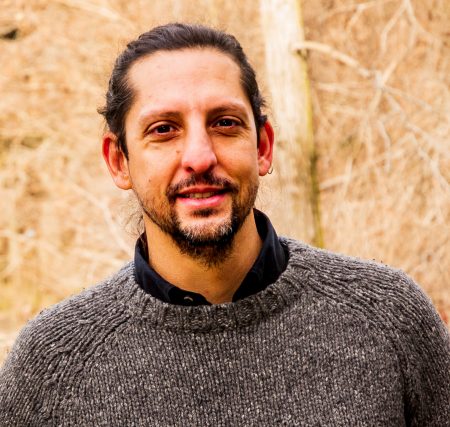
Horacio González Cesteros
Researcher
Born in Madrid in 1978, he studied History and Archaeology at the University of Madrid, where he graduated in 2002. He went on to receive his Master’s degree in 2009 and his PhD in 2014 from the University of Tarragona. Since 2017, he has been a researcher at the Austrian Archaeological Institute. His main lines of research focus on various aspects of the Hellenistic, Roman and Byzantine cultures, concerning the Eastern and Western Mediterranean.
– ORCID
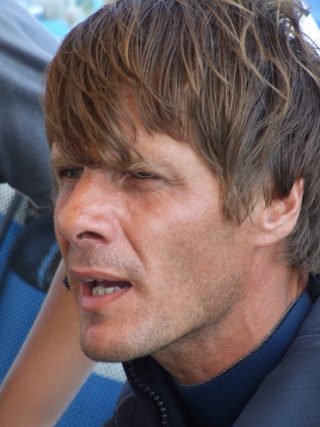
George Koutsouflakis
Researcher
Dr. George Koutsouflakis is a professional underwater archaeologist serving as director of Underwater Archaeological Sites, Monuments and Research in the Ephorate of Underwater Antiquities (Hellenic Ministry of Culture). Over the past 25 years, he has participated in numerous underwater researches and conducted full-scale underwater surveys in the Aegean Sea. His research is mainly focused on amphora-shipwrecks and it has translated into the discovery and documentation of over 100 previously unknown ancient and medieval shipwrecks.
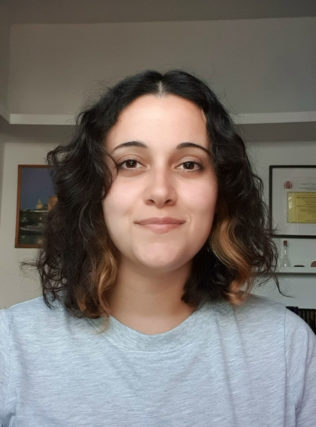
Maria de los Reyes López Jurado
Researcher
López Jurado achieved her degree and Master’s degree in Archaeology from the University of Seville, specialising in pottery and funerary remains from the Protohistory of the southwestern Iberian Peninsula. She is also a member of the research group HUM-152: “From Turdetania to Baetica”, as well as a collaborator on other projects, such as Ergasteria in the University of Seville.
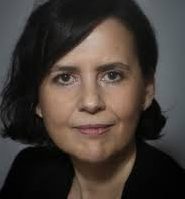
Ruth Pliego Vasquez
Researcher
Dr. Ruth Pliego studied Geography and History at the University of Seville, from which she graduated in 1996, then obtaining her PhD in 2006. Since 1997, she has been a part of a research group of the Department of Prehistory and Archaeology of said university, where she has recently taken the position of Assistant Lecturer. Her main line of research focuses on Numismatics and among her periods of interest is the Phoenician-Punic coinage.
– ORCID
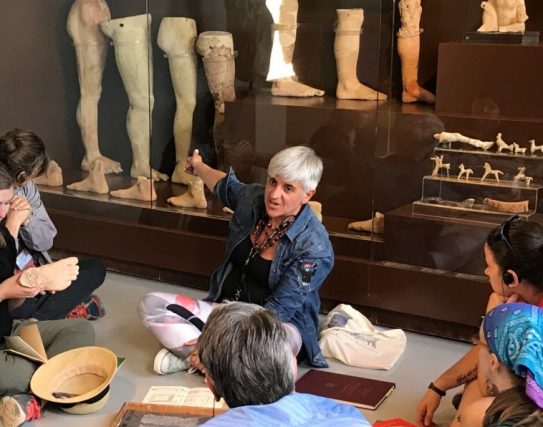
Ioulia TZONOU
Researcher
Ioulia Tzonou is the Associate Director of Corinth Excavations at the American School of Classical Studies. She has published on Mycenaean figurines, Carl Blegen and archaeological methodology in the Blackwell Companion to Early Greece. She is preparing a volume on Mycenaean Corinth and is interested in Corinth’s role in the Mediterranean through time. She is very actively involved in outreach.
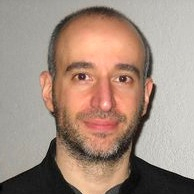
José Ángel Zamora López
Researcher
Zamora López holds a PhD from the University of Zaragoza, completing his academic training at the Sapienza Università and the Pontificio Istituto Biblico in Rome. Later on, he was Head of the Ancient History Area at the Spanish School of History and Archaeology in Rome and he is now CSIC Senior Scientist at the Institute of Languages and Cultures of the Mediterranean and the Near East. He is a great specialist in the ancient cultures of the Near-Eastern Levant and their Mediterranean influence and expansion. He studies their history and culture between the middle of the 2nd millennium BC and the first centuries of our era based mainly on their epigraphic sources. Within his work with Phoenician epigraphy, he has studied the inscriptions and seals on ceramic vessels, with special attention to the graffiti and stamps on Punic amphorae and their historical implications.
– ORCID
Collaborators
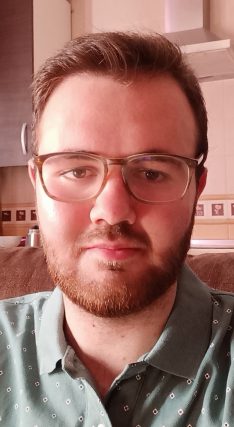
Juan del Caño Cobo
Collaborator
An undergraduate Archaeology student at the University of Seville (US), he has collaborated in multiple archaeological projects, such as the excavations at Cabezo de San Pedro (Teruel), Italica (Seville), Piedras Blancas I (Peña de los Enamorados, Antequera) or the Cueva de la Dehesilla (Algar). His interest is focused on the Asian Near East during Antiquity and long distance commercial contacts.

Ramón Díaz
Collaborator
Graduated in Archaeology from the University of Seville, he plans on specializing in domestic and commercial contexts of the Classical period of Ancient Greece, as well as in its influence on the daily life of the citizens and in the economy of the Hellenic polis.
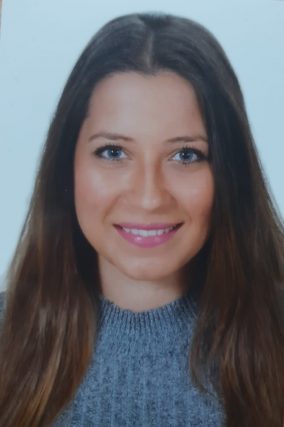
Aroa Heredia Barroso
Collaborator
A technician in administrative and financial management, she is an undergraduate Archaeology student at the University of Seville. Her topic of research focuses mainly on the diplomatic, social, religious and commercial relations established between Carthage and the Eastern Mediterranean, carrying out her final project on this topic.
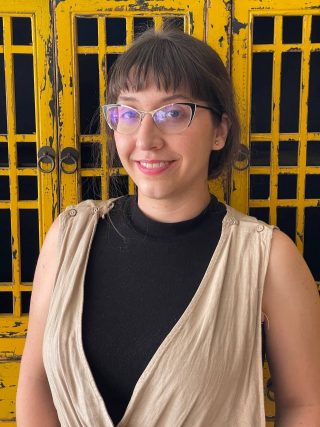
Penélope I. Martínez de los Reyes
Collaborator
An Archaeology graduate student at the University of Seville, her final project is a literary dissemination project with an archaeological basis regarding the trade relations between the Phoenician colonies in Southern Iberia and Corinth, especially focused on the Punic Amphora Building. Her fields of interests include the Near East and its relationships with the West, particularly the cultural exchanges that gave rise to new realities.
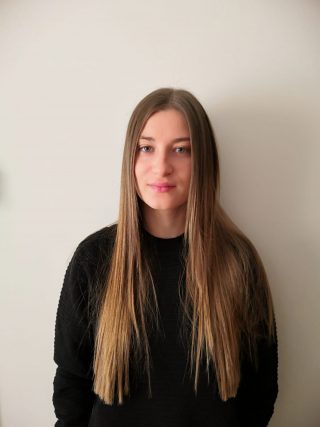
Bárbara Polo
Collaborator
Graduated in History of Art from the Autonomous University of Madrid, she is specializing by doing the Master of Archeology at the University of Seville. She has also participated in courses on Egyptian language and civilization. She has done work in Museums and archaeological excavations. She is currently carrying out studies on Naucratis and the commercialization and distribution of its commodities through the Ancient Mediterranean.
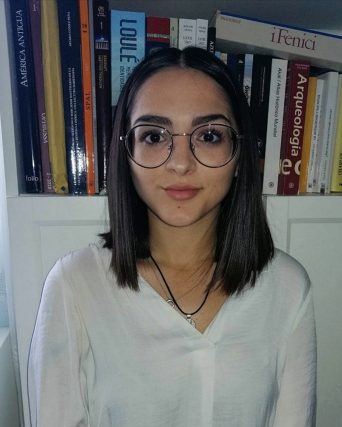
Carmen Ramírez Cañas
Collaborator
Graduated in Archaeology from the University of Seville, she is currently linked to the Department of Prehistory and Archaeology with a Collaboration Grant from the Ministry of Education. Focused on the study of the commercial role of Phoenician-Punic sanctuaries in the southwest of the Iberian Peninsula and their exchange networks, she has participated in several field works in the Guadiana and Guadalquivir basins, as well as in professional archaeology around the city of Cadiz.
Cooperating institutions
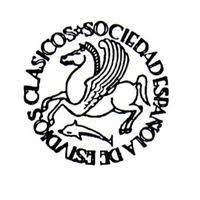
Sociedad Española de Estudios Clásicos (SEEC)
The SEEC is a member of the International Federation of Classical Studies Associations and of Euroclassica. Conformed by twenty-three delegations or chapters in Spain and by approximately 5,000 members, the SEEC aims to promote knowledge about the classical world and the cradle of western civilization. Likewise, it seeks to support teachers in their task to educate by offering scientific and didactic updates, as well as by organizing meetings and conferences to promote their contributions to the teaching and research of the classical world.
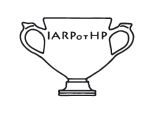
International Association for Research on the Hellenistic Pottery (IARPotHP)
The IARPotHP is a consortium of international specialists in the field of Hellenistic pottery. Their aim is to promote research, as well as to broaden and disseminate knowledge about this field of study. The IARPotHP was founded in the fall 2011 under the initiative of Zoi Kotitsa alongside a group of seven archaeologists (Guy Ackermann, Andrea Berlin, Pia Guldager Bilde, Patricia Koegler, Zoi Kotitsa, John Lund and Annette Peignard-Giros) from six countries (Denmark, France, Germany, Greece, Switzerland and USA). It is based in Würzburg, Germany, and it is an independent, non-profit organization.

BBVA fundation
The BBVA Foundation expresses the corporate social responsibility of the BBVA Group, in particular, its commitment to the advancement of the societies where it conducts its business activity. This responsibility and commitment have given rise to an extensive body of work in diverse knowledge areas.
The promotion of knowledge based on research and artistic and cultural creation, and the interaction of these domains, forms a core strand of the BBVA Foundation’s work program. Accordingly, the three main thrusts of the Foundation’s work are the support for scientific research and cultural creation (through grants for individuals and teams), the dissemination of knowledge and culture, and the recognition of talent and innovation through diverse families of awards.
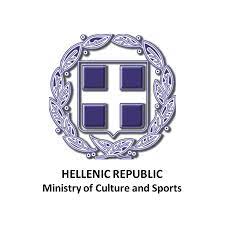
The Ephorate of Antiquities of Achaia
The Ephorate of Antiquities of Achaia is a Regional Service of the Hellenic Ministry of Culture & Sports that falls under the General Directorate of Antiquities & Cultural Heritage. It operates at the level of a Directorate, has its headquarters in Patras and its jurisdiction extends to the Prefecture of Achaia. The responsibilities of the Ephorate include the protection of monuments and sites ranging chronologically from prehistoric to post-Byzantine times, the carrying out of rescue excavations, the supervision of excavations of the Foreign Schools of Archaeology, as well as the study and scientific publication of archaeological findings.
ERGASTERIA project
The ERGASTERIA project proposes an experimental approach to resolve some of the key questions regarding the processes of ceramic production and commercialization of products packaged in amphorae in the southwest of the Iberian Peninsula during the 1st millennium BC. Through material experimental tests (manufacturing of kilns, tools and ceramics at real scale, using clays and original recipes identified through archaeometric findings and analyses) and the development of virtual studies (applying specialized software and developing digital models), the purpose of the project is to obtain unpublished data on protohistoric pottery and amphorae from southern Iberia, as well as to generate a methodological model and to refine new scientific tools.

Iberia Graeca
The Iberia Graeca Center is a state organization created by the Spanish Ministry of Culture and the Regional Ministry of Culture of the Generalitat de Catalunya in 2006 (BOE 56 of 6/3/2007) for the development of research, documentation, conservation, and dissemination projects of the Greek archaeological heritage of the Iberian Peninsula.
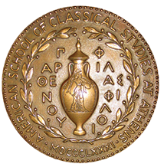
American School of Classical Studies at Athens (ASCSA)
For 139 years, the American School of Classical Studies at Athens (ASCSA) has served American post-graduate education as one of the preeminent overseas research institutions devoted to the advanced study of all aspects of Greek culture from Antiquity to the present day. The broad mission of the School has remained constant over its distinguished history: teaching, research, archaeological exploration, publication, and dissemination of research. This institution offers graduate students an unparalleled immersion into the sites and monuments of Greek civilization. The School also affords many facilities, resources, activities, and other programs for scholars, professors, and undergraduate students.
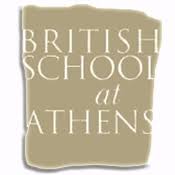
British School of Athens (BSA)
Founded in 1886, the British School of Athens (BSA) is a UK-registered charity and one of seven British International Research Institutes that receive annual funding from the British Academy. The School exists to promote research of international excellence in all disciplines pertaining to Greek lands, from fine art to archaeometry, in all periods to modern times. It does so through an academic program of seminars, lectures, and conferences, which is connected to a research program undertaken both alone and in collaboration with UK-based and other overseas institutions. The BSA promotes the use of its archival, laboratory, and museum collections by the scholarly community worldwide.
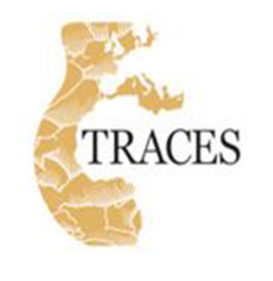
Research laboratory Traces
TRACES is a French research laboratory in archaeology of the CNRS (UMR 5608), associated with the University of Toulouse II Jean-Jaurès (France), and affiliated with the EHESS, the INRAP and the archaeology service of Toulouse-Métropole. Its name initially comes from an acronym, which was developed as “Travaux et Recherches Archéologiques sur les Cultures, les Espaces et les Sociétés”. TRACES is the result of the regrouping of two previous teams, the UTAH and the CRPPM, each of which has a long history that began in the 1970s.


